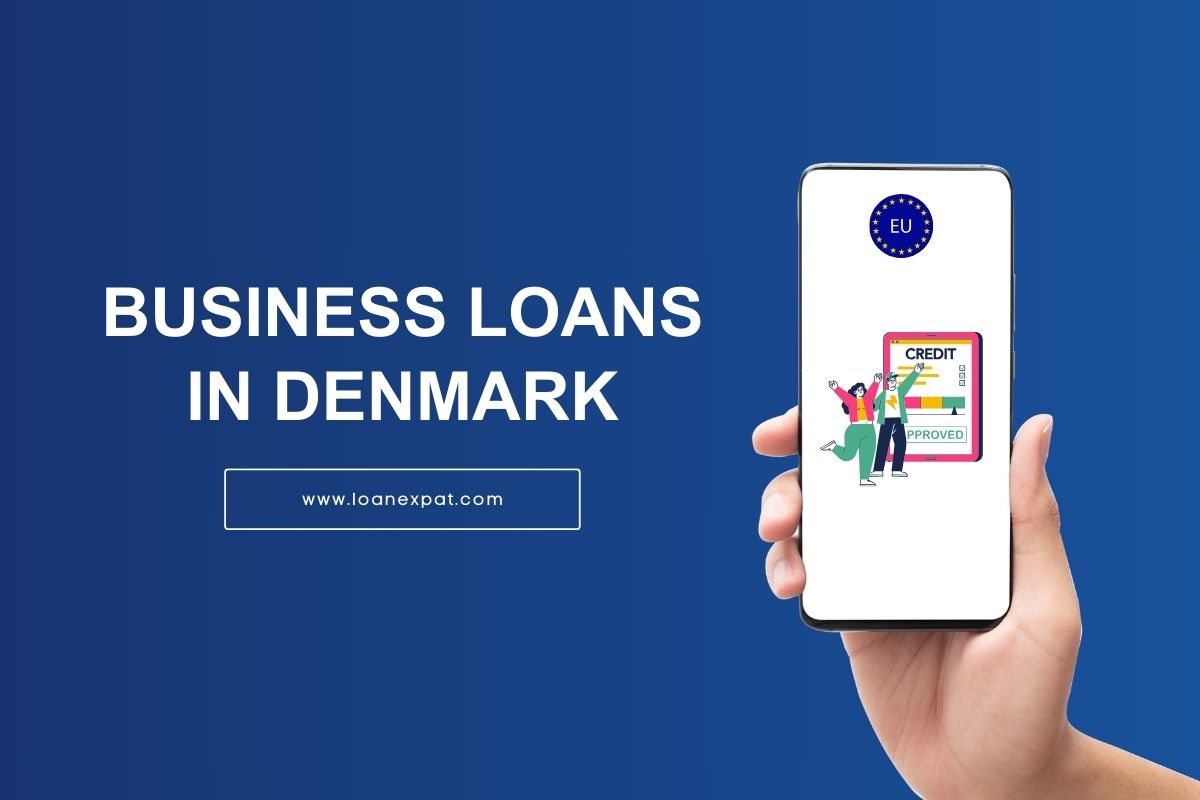Our database offers an extensive overview of business loans in Denmark, targeting entrepreneurs and companies seeking financial support. With 4 loan options available, our platform details interest rates, loan amounts, repayment periods, and eligibility criteria. This data-driven approach aids businesses in comparing and selecting the best financing solution to meet their growth and operational objectives.
Qred
Credit amount
DKK 10.000 – 2.000.000
Payment period
1 – 12 mos.
Rating
Interest
0%
Min. age
Example: The loan is interest-free. You pay a fixed monthly fee every month, and no other fees are added. The monthly fee is individual and based on a credit assessment. The company’s credit assessment is based on several different parameters, and we conduct an individual evaluation and analysis of each application.
Broaden
Credit amount
DKK 5.000 – 75.000
Payment period
1 – 12 mos.
Rating
Interest
0%
Min. age
Example: 100,000 DKK. Total loan costs: 2,500 DKK. Total repayment amount: 12,500 DKK. Debtor interest rate (fixed annual): 0%. The loan has a duration of 12 months and is thus repaid in 12 equal monthly installments. An establishment fee of 25% of the loan amount is calculated, equivalent to the total loan costs, which is added to the principal. You can settle your loan at any time within the period.
Requirements
Securing a business loan in Denmark requires a set of criteria established by lenders to ensure that businesses are viable candidates for financing. These requirements are designed to assess a business’s financial health and potential, ensuring that loans are extended to entities with a clear plan for growth and repayment.
- Business Registration and History: Your business must be properly registered in Denmark. Lenders typically look for businesses with a track record of operation, preferring entities with at least two years of financial statements to assess stability and profitability.
- Financial Statements: Comprehensive financial statements are crucial. These include balance sheets, income statements, and cash flow statements for the past two years, providing insight into the financial health of the business.
- Business Plan: A detailed business plan is often required. This should outline the purpose of the loan, projected revenues, market analysis, and a clear strategy for growth, demonstrating how the loan will contribute to the business’s success.
- Creditworthiness: The credit history of both the business and its owners is evaluated. A strong credit score can significantly influence the terms of the loan, including the interest rate and the amount that can be borrowed.
- Collateral: Depending on the loan amount and purpose, collateral might be required as security for the loan. This could be in the form of real estate, inventory, or other assets.
Interest Rates
Based on general market data, business loans in Denmark often come with interest rates ranging from 1% to 6%. This range is influenced by factors such as the loan amount, repayment period, and the financial health of the borrowing entity.
Banks and financial institutions offer different terms, with some providing lower rates for businesses with strong credit histories or those offering collateral.
The market’s competitive nature means businesses have multiple options to consider when seeking financing. Our analysis of the current offerings shows a trend toward competitive pricing, especially for loans designed to support growth and expansion projects.
Loan Terms
Loan terms, including repayment periods and conditions, significantly impact the overall cost and feasibility of a loan for businesses. In Denmark, business loans offer a variety of terms that cater to different needs and objectives. Generally, the repayment period for business loans can range from 1 to 10 years, allowing for flexibility in financial planning and budgeting.
Short-term loans often provide immediate capital for operational needs, with terms up to 2 years. These are suitable for businesses looking for quick financing solutions without long-term commitments. On the other hand, long-term loans, with terms extending up to 10 years, are ideal for significant investments such as expansion, acquisition, or large-scale equipment purchases.
The conditions attached to these loans, such as early repayment penalties or the requirement for collateral, also vary. Some lenders offer more favorable conditions, including flexible repayment plans or early settlement options without additional costs. Our platform’s data highlights the diversity of loan terms available, emphasizing the importance of comparing options to identify the most advantageous terms.
Types of Business Loans
The four most common types of business loans in Denmark, reflecting their broad applicability and demand among businesses of various sizes and sectors.
- Term Loan: Widely favored for its straightforward structure, term loans provide businesses with a lump sum of capital to be repaid over a set period. They are ideal for funding significant one-time expenses, such as expansion projects or large purchases.
- Line of Credit: Offering flexibility, a line of credit allows businesses to draw funds up to a specified limit as needed, making it a go-to option for managing cash flow and unexpected expenses.
- Invoice Financing: This is a popular choice for businesses that need quick access to cash without waiting for the payment terms of their invoices. It helps improve cash flow by allowing businesses to borrow against the value of their outstanding invoices.
- Equipment Financing: Tailored for purchasing new or used equipment, equipment financing provides businesses with the means to acquire necessary operational tools without a significant upfront investment, thereby preserving cash flow for other uses.’
Example of a short-term business loan
Short-term loans are typically used for immediate operational needs, such as inventory purchases, covering unforeseen expenses, or bridging temporary cash flow gaps.
| Detail | Specification |
|---|---|
| Loan Type | Short-term Business Loan |
| Loan Amount | DKK 250,000 |
| Interest Rate | 8% Annual Interest |
| Repayment Term | 12 months |
| Purpose of the Loan | Inventory Purchase for Upcoming High Demand Season |
| Monthly Repayment | DKK 21,667 (Principal) + DKK 1,667 (Interest) = DKK 23,334 Total |
| Total Repayment Amount | DKK 280,008 |
| Collateral Required | None |
| Early Repayment Fee | None |
Frequently Asked Questions (FAQs)
How do I qualify for a business loan in Denmark?
Qualifying for a business loan typically requires your business to be registered in Denmark, have a clear financial history, provide recent financial statements, and have a solid business plan. Creditworthiness and sometimes collateral are also crucial factors.
What documents do I need to apply for a business loan?
Common documents include detailed business plans, financial statements (income statement, balance sheet, cash flow statement), tax returns, proof of business registration, and sometimes personal financial information of the owners.
Can startups get business loans in Denmark?
Yes, startups can obtain business loans, especially microloans designed for new enterprises. However, they may need to demonstrate strong business potential and possibly provide personal guarantees.
How long does it take to get a business loan approved?
The approval time can vary significantly, from a few days to several weeks, depending on the lender, the loan type, and the completeness of the application.
Are there any business loans without collateral in Denmark?
Yes, unsecured business loans that do not require collateral are available, particularly for smaller loan amounts or for businesses with strong credit ratings. Interest rates may be higher for these loans to offset the lender’s increased risk.
Important English Resources
Visit SKAT for comprehensive insights into how your loans in Denmark interact with taxes. Discover essential information on tax deductions related to loan interest and other financial benefits, helping you understand the tax implications of your borrowing decisions.
Visit the Danish FSA (Finanstilsynet) for vital regulatory information on financial institutions and loan offerings in Denmark. Gain clarity on the oversight and consumer protection standards applicable to your loan choices, ensuring you make informed, secure financial decisions.
Check out Finansforbundet to delve into resources and support services for individuals understanding the financial sector in Denmark. Access valuable insights and guidelines that can assist you in making well-informed choices regarding your loan and financial well-being.





